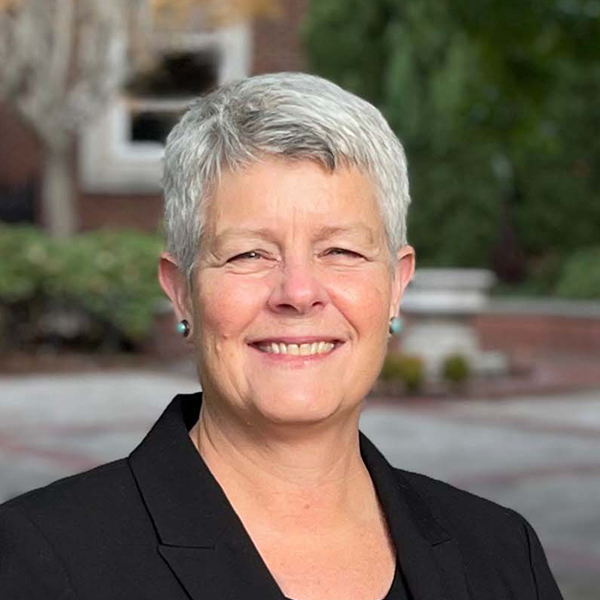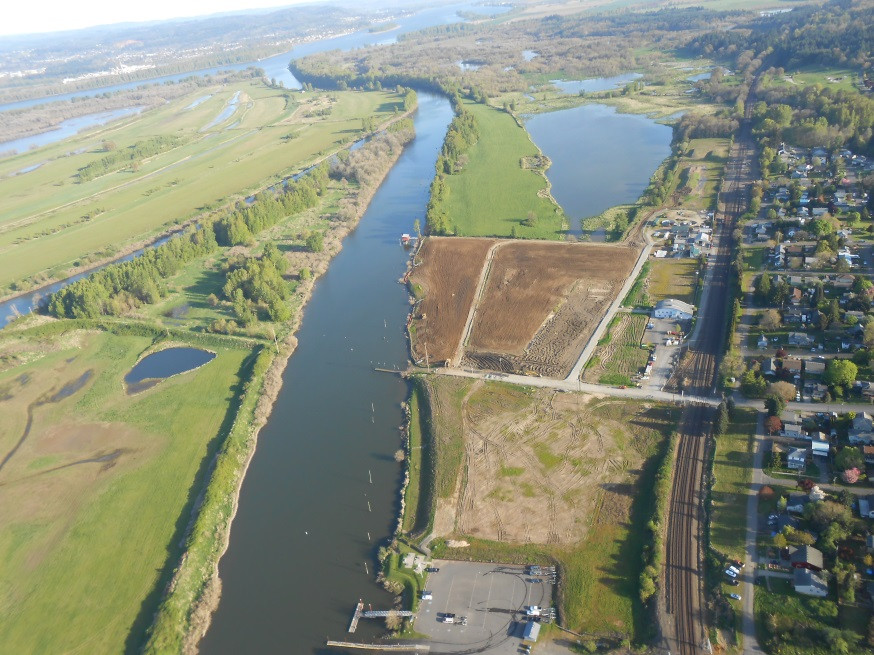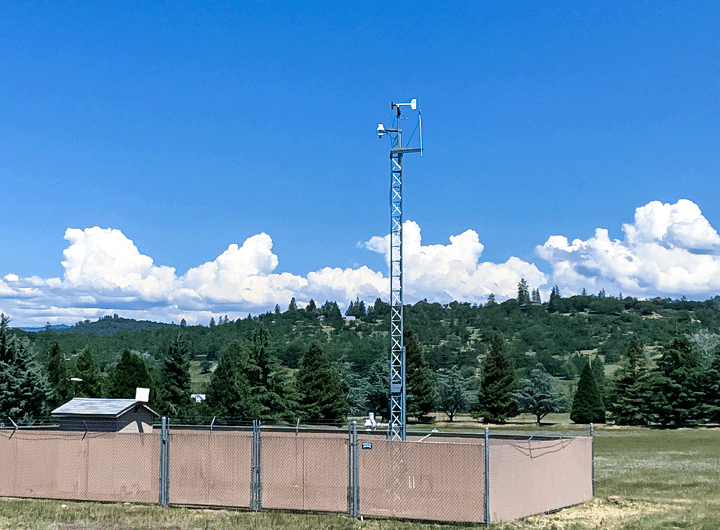Funding
State and Federal Grant Funding Opportunities Third Quarter of 2025

Funding opportunities in the third quarter of 2025 provide support for ports and tribes, support disadvantaged communities in home ownership, help communities address the effects of climate change, and support improved infrastructure systems. As the federal administration continues to evaluate federal funding programs, there may be uncertainty about the ongoing availability of these grants. We have included only open funding sources for which funds have been allocated. As always, we recommend that you confirm status and eligibility requirements at the program website.

Third Quarter 2025
Federal Funding Opportunities
$500 Million Available through the Port Infrastructure Development Program
USDOT program supports the safety, efficiency, or reliability of the movement of goods into, out of, around, or within a port.
The U.S. Department of Transportation Maritime Administration is providing up to $500 million in total to help ports improve the safety, efficiency, or reliability of the movement of goods through ports or intermodal connections. Eligible applicants include special purpose districts (such as ports) with a transportation function, tribes, local governments, and multijurisdictional entities. Eligible projects include those within port boundaries or projects directly related to port operations or an intermodal connection. Proposed projects may improve loading, unloading, or movement of goods; port operational improvements; environmental and emissions mitigation measures; or infrastructure to support seafood-related business. A 20 percent match is required for most projects; however, projects in rural areas or for small ports may be eligible for a reduced matching percentage. Applications are due September 10, 2025. For more information, visit the Port Infrastructure Development Program page.
Funding Available to Develop Infrastructure for Economic Development
USEDA program supports planning for and constructing needed infrastructure.
The U.S. Economic Development Administration assists state and local entities in responding to a wide range of economic challenges through the development, updating, or refinement of a comprehensive economic development strategy and grants to support the execution of activities identified in a CEDS, such as infrastructure improvements (including site acquisition), site preparation, construction, rehabilitation, and equipping of facilities. Eligible projects include market and environmental studies, planning or construction, and capitalizing or recapitalizing Revolving Loan Funds to help small businesses. Eligible applicants include district organizations of EDA-designated economic development districts, tribes, local governments, and multijurisdictional entities. Typical awards range from $600,000 to $5 million. A 50 percent match is required for most projects; however, reduced matching percentages may be provided for projects in areas of economic distress. Applications are accepted on an ongoing basis until funding runs out. For more information, visit the Economic Adjustment Assistance page.
$25 Million Anticipated for Tribal Transportation Safety Planning
Program to improve safety in tribal areas is estimated to open funding in early October.
The U.S. Department of Transportation has announced it plans to open the application period for approximately $25 million in funding for federally recognized tribes in early October 2025. The program goal is to assist tribes in developing strategies, activities, and projects on public roads to correct or improve a hazard or address a highway safety problem. Some eligible project types include the addition of features such as roundabouts and rumble strips; safety improvements for pedestrians, cyclists, or persons with disabilities; traffic-calming features; installation or replacement of signage; safety planning; collecting safety data; and many others. For projects on facilities not owned by a tribe, a letter of support from the facility owner is required. Matching funds are not anticipated to be required; however, if the number of qualified applications exceeds the available funding, then applicants with leveraged funds will receive priority consideration. Applications are anticipated to be accepted October 1, 2025, through January 15, 2026. To learn more, visit the Tribal Transportation Program Safety Fund website.
Up to $5 Million Available to Reduce Threats to Public Safety for Tribes
Program supports tribes in making improvements that support public health and safety.
The U.S. Department of Housing and Urban Development is providing funding to help tribes alleviate or remove imminent threats to health or safety. Eligible projects include acquiring land or buildings, improving public facilities buildings or infrastructure, assisting community members with relocation or housing, or constructing or improving utilities. Eligible applicants include tribes and tribal organization. Awards are available for up to $750,000 or up to $1.5 million, depending on type of disaster. No match is required. Applications are reviewed and accepted on a rolling basis. To learn more, visit the Indian Community Development Block Grant Program page under Imminent Threat Grants.
Up to $23 Million Available to Support Tribal Historic Preservation Offices
Program supports identification, evaluation, and protection of historic properties on tribal lands.
The U.S. Department of Interior National Park Service is providing funding to assist Tribal Historic Preservation Offices in carrying out the historic preservation activities on tribal lands. Eligible activities include surveying, planning, receiving technical assistance, physical preservation, review of Federal undertakings, education, and listing a property in the National Register of Historic Places and Tribal Registers. Federally recognized tribal governments are the eligible applicants for this funding. Typical awards range from $10,000 to $200,000. No match is required. Applications are due August 29, 2025. To learn more, including additional details on eligibility, visit the Tribal Historic Preservation Office page.
Up to $2 Million Available per Tribe for Drought Relief
Program supports water resource protection and related tribal trust resources.
The U.S. Bureau of Reclamation is providing funding to assist tribes in western states to develop, manage, and protect their water and water-related resources. Eligible proposals must mitigate drought impacts, increase resiliency to drought, reduce reliance in declining water resources, increase the efficiency of water delivery, mitigate the loss of water and related tribal trust resources, or address drinking water shortages. Emergency drought relief is available at up to $2 million per project (and per tribe). No match is required. Applications are due October 14, 2025. To learn more, visit the Native American Affairs Program page and the links under Notice of Funding Opportunities, Emergency Drought Relief for Tribes Fiscal Year 2025.

Third Quarter 2025
Washington State Funding Opportunities
Washington Water Quality Combined Funding Program Cycle Opens Soon
The application period opens in late July.
The Washington State Department of Ecology’s Water Quality Combined Funding Program will open after July 22. This megaprogram comprises seven individual programs:
- Washington State Water Pollution Control Revolving Fund Program (which includes funding for emerging contaminants)
- Stormwater Financial Assistance Program
- Centennial Clean Water Program
- Clean Water Act Section 319 Nonpoint Source Grant Program
- Sewer Overflow and Stormwater Reuse Municipal Grants Program
- Stormwater Community-Based Public-Private Partnership Program
- Municipal Stormwater Grants of Regional or Statewide Significance Program
Eligible applicants include local and tribal governments; ports; sewer, conservation, and irrigation districts; local health jurisdictions; and quasi-municipal corporations. Applicants can apply for all available funding sources using a single application. Eligible project categories include wastewater, stormwater, and sewer facilities; stormwater activities such as monitoring and planning; and nonpoint source activities such as planning, outreach, monitoring, land acquisition, implementing best practices, and others. Matching requirements vary by funding source; some funds may require up to a 25 percent match. The application period opens in late July and closes on September 3, 2025. Ecology will hold applicant workshops from July 22 through 24. For more information, to register for a workshop, or view the application guidance, visit the Water Quality Combined Funding Program page.
Assistance for Comprehensive Plan Updates in Washington
Cities and counties are eligible for funding to complete required elements.
The Washington State Department of Commerce is providing grants for cities and counties planning under the Growth Management Act and developing updates to their comprehensive plans or development regulations. Jurisdictions are eligible based on the due date of their update and are notified of their eligibility by Commerce. Beginning July 1, 2025, counties and cities with a 2027 periodic update deadline will be eligible to receive funding, which is distributed over the course of two fiscal years. Grant amounts vary according to a jurisdiction’s population and planning status. No match is required. Applications for funding are due October 17, 2025. For more information, visit the Periodic Update Grants page.
Up to $1 Million Available to Connect New Affordable Housing to Municipal Systems in Washington
Program aims to help local governments spur development.
The Washington State Department of Commerce is providing up to $1 million per project to fund utility improvements and system development charges to connect new affordable housing developments to municipal systems. Eligible applicants include cities, counties, and public utilities. Eligible costs include sewer, stormwater, and right-of-way infrastructure costs that support an affordable housing project, including design, architectural, and engineering work; permits and fees; construction costs; related equipment; land acquisition if purchased for the utility project; and other costs including system development charges. No match is required. Applications for funding are due by September 26, 2025. For more information, visit the Connecting Housing to Infrastructure Program page.
Up to $10 Million Available for Wastewater Treatment Improvements
Program aims to clean up wastewater treatment in Puget Sound.
The Washington State Department of Ecology is providing funding to help municipalities prepare and plan for future wastewater treatment facility upgrades and modify operations to maximize nutrient removal from existing treatment processes to address the Puget Sound Nutrient General Permit requirements. Eligible applicants include municipalities with wastewater treatment facilities that discharge to Puget Sound. Eligible projects include planning , monitoring, implementing operational efficiencies, and infrastructure improvements. Projects must demonstrate a clear link to reducing nutrients to Puget Sound and represent a long-term strategy. No match is required. Applications are due by September 3, 2025. For more information, visit the Puget Sound nutrient reduction grants program page.
$72 Million Available to Support Affordable Housing Home Ownership in Washington
Program aims to increase the number of homeowners in the state.
The Washington State Department of Commerce is providing funding to boost the number of low-income home buyers and the amount of affordable housing stock available for purchase. Eligible applicants include tribes, local governments and housing authorities, nonprofits, and behavioral health organizations. Eligible projects must assist first-time low-income buyers. Projects must create affordable housing units or otherwise undertake activities resulting in an increase of affordable housing stock in Washington state. Up to $6 million will be available for a new construction or acquisition project; up to $4 million will be available for an affordability subsidy; and up to $3 million will be available for down payment assistance. For urban areas, projects must include funds from other sources. The deadline for the submittal of waivers is September 6; applications are due by September 26, 2025. For more information, visit the Housing Trust Fund program page or download the program guidance and documents.
$112.2 Million Available to Develop Multifamily Rental Complexes in Washington
Program aims to increase the number of multifamily rental units in the state.
The Washington State Department of Commerce is providing funding to boost the number of new multifamily affordable housing projects available. Eligible applicants include tribes, local governments and housing authorities, and nonprofits. Eligible projects include new construction, rehabilitation, and acquisition at a single or multiple locations conducted in accordance with Housing Trust Fund guidance in the HTF Handbook. Projects must result in affordable housing for low-income people. Up to $5 million will be available per project. Applicants seeking supplemental Washington State HOME or federal National Housing Trust Fund funds for the acquisition and/or new construction of multifamily rental housing should consult the additional guidance in the HOME and National Housing Trust Fund notice of funding availability (NOFA #MHU-2025-02). For the main Housing Trust Fund program, waiver requests for funding limits must clearly document the requester’s attempt to secure other resources. Waiver requests must be submitted by October 2, 2025; applications are due by October 16, 2025. For more information, visit the Housing Trust Fund program page or download the HTF program guidance and documents.
Funding Available for NPDES Permit Compliance in Washington
Program supports operational activities necessary for compliance.
The Washington State Department of Ecology provides funding every year to help municipalities with Phase I or Phase II National Pollutant Discharge Elimination System Municipal Stormwater General Permits to comply with permit requirements. Funding may be used for program management, public education and outreach, water quality monitoring, detecting illicit discharges, source control and pollution prevention, annual reporting, and other noncapital activities. Each applicant may receive up to $120,000; there are no match requirements. Applications are due September 3, 2025. For more information, visit the Stormwater Capacity Grants Program page.

Third Quarter 2025
Oregon State Funding Opportunities
$12 Million Available for Renewable Energy and Energy Resilience in Oregon
Program supports renewable energy and energy resilience projects.
The Oregon Department of Energy is providing up to $12 million to support renewable energy or energy resilience projects. Eligible applicants include tribes, local governments, special purpose districts such as ports and irrigation districts, and consumer-owned utilities. ODOE will offer grants up to $100,000 for eligible planning projects and up to $1 million for eligible construction projects. Priority will be given to projects that support program equity goals, demonstrate community energy resilience, and include energy efficiency and demand response. At least half of the grant funds will be awarded for projects that serve environmental justice communities, including communities of color, lower-income communities, rural communities, and others. No match is required. Applications are due August 22, 2025. For more information, visit the Community Renewable Energy Grant Program page.
Contact
Contact Seth for help with grant application and strategy.





